 “But I think he [H.G. Wells] thought that the object of opening the mind is simply opening the mind. Whereas I am incurably convinced that the object of opening the mind, as of opening the mouth, is to shut it again on something solid.”
“But I think he [H.G. Wells] thought that the object of opening the mind is simply opening the mind. Whereas I am incurably convinced that the object of opening the mind, as of opening the mouth, is to shut it again on something solid.”
G.K. Chesterton, Autobiography

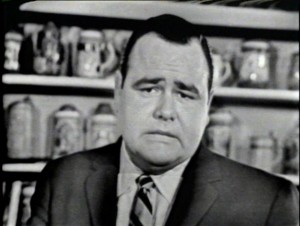 In Winters’ case, his private sorrows were arguably characteristic of those drawn to his profession. It’s no secret that much comedy—maybe most of it—is driven by anger and aggression. When I
In Winters’ case, his private sorrows were arguably characteristic of those drawn to his profession. It’s no secret that much comedy—maybe most of it—is driven by anger and aggression. When I 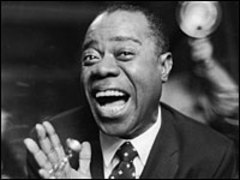 Yes, there are other ways to turn life into art, and there were those who thought that his sunny-sided aesthetic was naïve. But Armstrong was no naïf: he was a man without illusions who had seen the worst that life has to offer. His commitment to hope was serious, just as all first-rate comedy is serious, and as I’ve said many times in this space and
Yes, there are other ways to turn life into art, and there were those who thought that his sunny-sided aesthetic was naïve. But Armstrong was no naïf: he was a man without illusions who had seen the worst that life has to offer. His commitment to hope was serious, just as all first-rate comedy is serious, and as I’ve said many times in this space and 
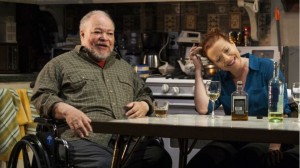 Stephen McKinley Henderson is an actor’s actor, universally admired in the business but mostly unknown outside it. Why? Because he’s a character actor, not a leading-man type. He plays supporting roles, some of them quite small, though you never fail to notice him. A case in point was the recent Broadway revival of “A Raisin in the Sun,” in which he was onstage for no more than five minutes yet still managed, as the saying goes, to eat everybody else’s lunch. That makes it all the more delightful to watch him strut his formidable stuff in Stephen Adly Guirgis’ “Between Riverside and Crazy,” of which he is, at long last, the undisputed star. Mr. Henderson, who spends most of the play sitting in a wheelchair, acts with such seeming effortlessness that you’ll have to look twice—maybe even three times—to catch him stealing every scene.
Stephen McKinley Henderson is an actor’s actor, universally admired in the business but mostly unknown outside it. Why? Because he’s a character actor, not a leading-man type. He plays supporting roles, some of them quite small, though you never fail to notice him. A case in point was the recent Broadway revival of “A Raisin in the Sun,” in which he was onstage for no more than five minutes yet still managed, as the saying goes, to eat everybody else’s lunch. That makes it all the more delightful to watch him strut his formidable stuff in Stephen Adly Guirgis’ “Between Riverside and Crazy,” of which he is, at long last, the undisputed star. Mr. Henderson, who spends most of the play sitting in a wheelchair, acts with such seeming effortlessness that you’ll have to look twice—maybe even three times—to catch him stealing every scene.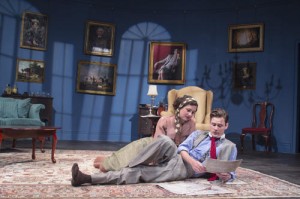 Now for the good news: Tom Story, one of the stars of the Shakespeare Theatre Company’s 2009 production, has directed a stylish revival of “Design for Living” in the Berkshire Theatre Group’s 122-seat Unicorn Theatre. The scale is intimate, the décor modest but attractive, and the three leads are played by Chris Geary, Tom Pecinka and Ariana Venturi, three talented graduate students from the Yale School of Drama who turn Otto, Leo and Gilda into a trio of bright but unsure young things who play at life in order to find themselves. It’s an engagingly fresh take…
Now for the good news: Tom Story, one of the stars of the Shakespeare Theatre Company’s 2009 production, has directed a stylish revival of “Design for Living” in the Berkshire Theatre Group’s 122-seat Unicorn Theatre. The scale is intimate, the décor modest but attractive, and the three leads are played by Chris Geary, Tom Pecinka and Ariana Venturi, three talented graduate students from the Yale School of Drama who turn Otto, Leo and Gilda into a trio of bright but unsure young things who play at life in order to find themselves. It’s an engagingly fresh take…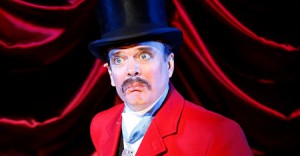 •
•